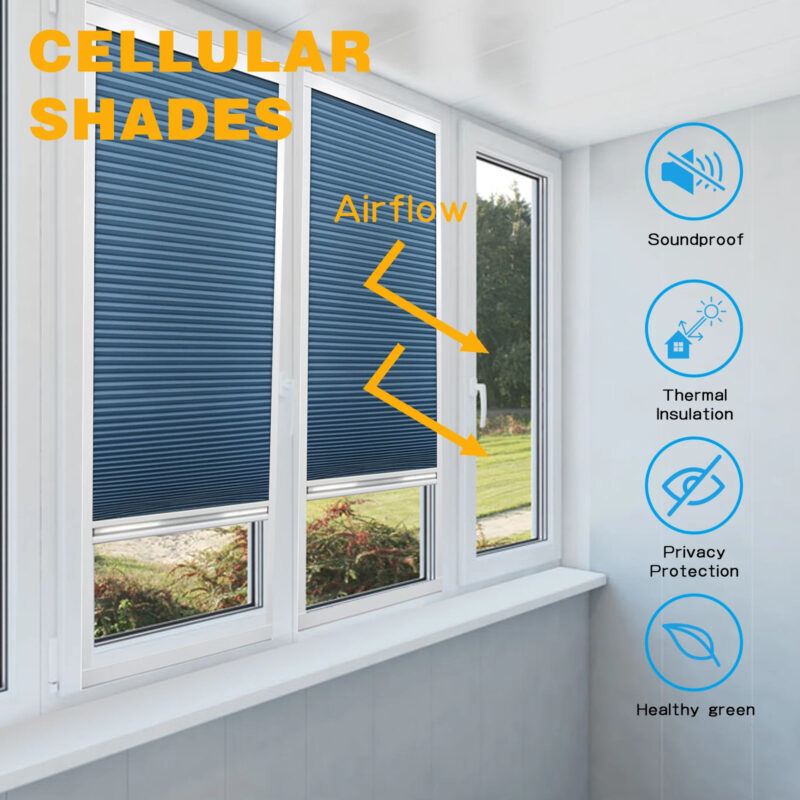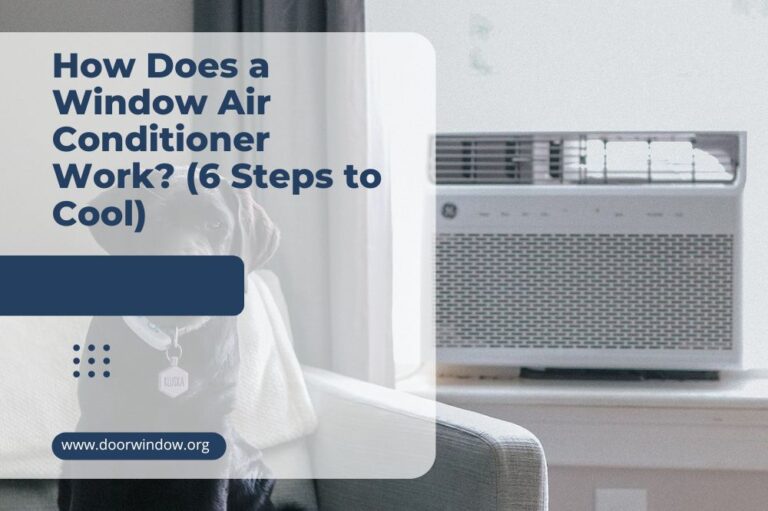How Long Does Freon Last In A Window Air Conditioner? (Everything You Need To Know)
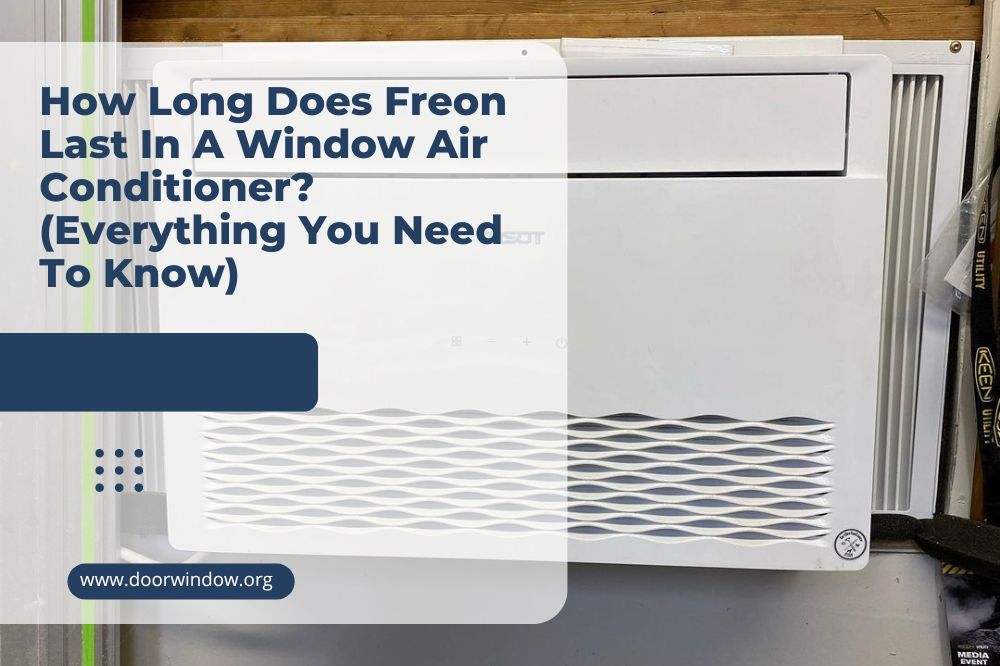
Have you ever wondered how long does freon last in a window air conditioner? Maybe you even heard some information on this topic, but you were not sure if and how accurate it was.
Well, do not worry – you have come to the right place because we will not only give you the answer to the first question but also teach you much more about freon!
How Long Does Freon Last In A Window Air Conditioner?
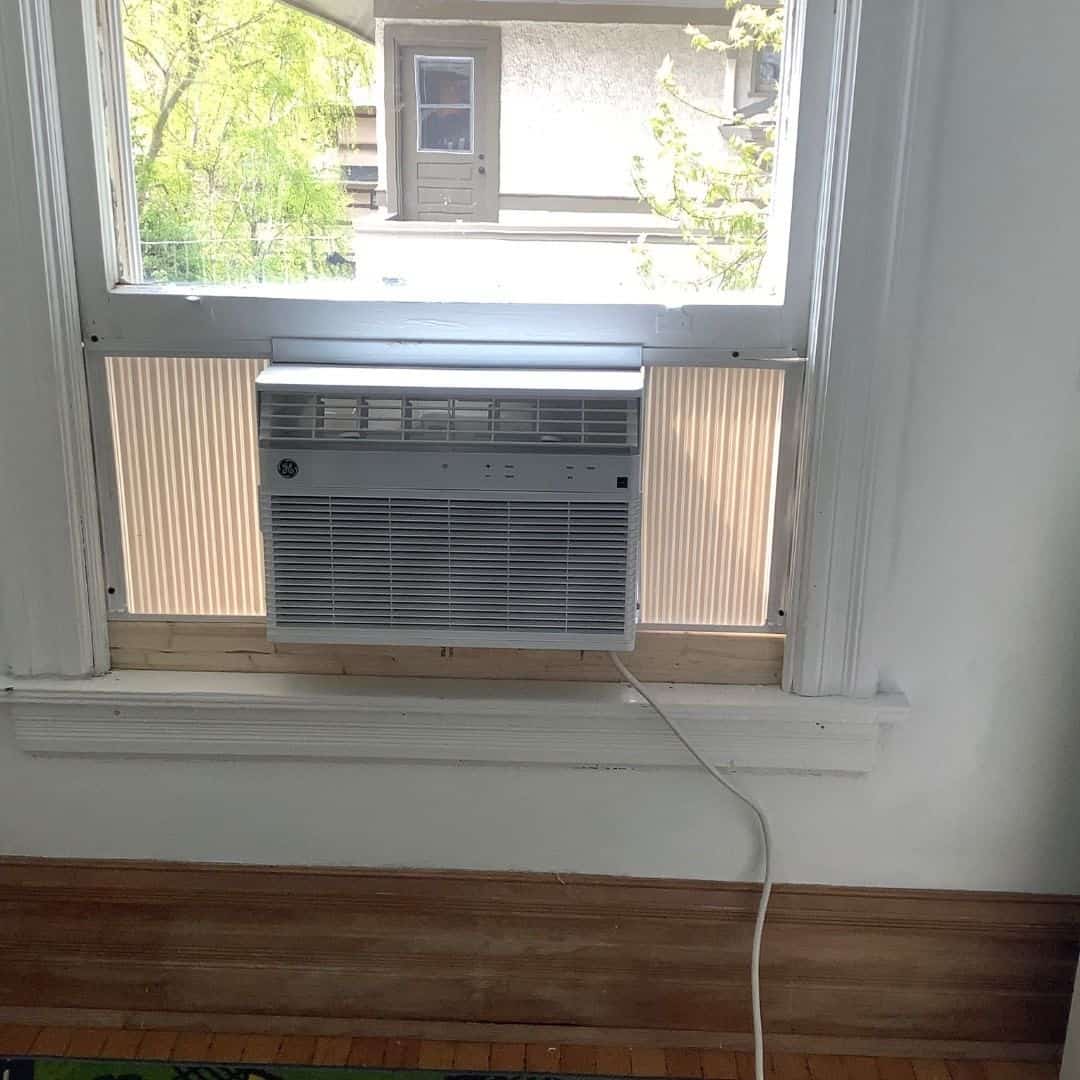
What is Freon?
Freon is the name of a registered patent for a commercial refrigerant produced by DuPont. At one point, it was so popular that it started being used as a synonym for refrigerant in air conditioners, refrigerators, and freezers.
These cooling agents are simple, stable organic compounds based on fluorine and carbon, which can appear in gaseous or liquid form. In addition to the absence of odor and color, their properties are non-flammability, non-corrosiveness, and low toxicity.
Some of the more popular freons which were used in the past are R-11, R-12, and R-502, with R-22 refrigerant being the most common one.
However, due to their non-environmental properties, the U.S. Environmental Protection Agency (EPA) banned these freons from use. Nowadays, freons such as R407c, R410A, and R32 are utilized instead, which are less harmful to the ozone layer.
How Long Does Freon Last In A Window Air Conditioner?
We have good news and bad news for you.
The good news is that unlike the vast majority of things in this world, freon lasts forever since the AC is based on a closed system. Yes, you heard right – if your air-cooling unit never breaks down or malfunctions, the freon in it will circulate forever and cool the hot air that gets sucked into the AC system.
Now the bad news. Nothing is perfect, especially not the electrical and electronic devices we use.
Unfortunately, the AC unit is one of them, which means that sooner or later it will break, especially if we do not use it and maintain it properly. And while it can last anywhere between 10 and 30 years before it becomes completely unusable, a breakdown or failure will surely happen somewhere along the way.
One of the malfunctions that can happen is a leak in the AC’s refrigerant lines. Because of this, the refrigerant level will start to drop, which means that you will have to get someone to fix the leak and add new freon to the AC system.
Leak repairs and refiling are best left to the professionals, so do not forget to contact your local HVAC service company!
What Can Cause A Freon Leakage?
Let’s look at three of the most common causes of freon leaks.
1. Wear and Tear
The first and most common cause of a freon leak is wear and tear. Freon circulates through evaporator coils, valves, compressors, tubes, and other refrigerant-carrying pieces under high pressure, during which all these components expand and contract since they are exposed to temperatures that fluctuate a lot.
Sooner or later, all this pressure, expansion, and contraction leaves a mark on them, due to which small cracks start to appear, which can become large enough for freon to leak through them.
2. Improper Installation
Unless you are an HVAC technician, this is another cause you can not influence. Not all HVAC service providers are of the same quality, which is why sometimes, during installation, an error can sneak in, leading to a freon leak. It is human to err, but still, be careful when picking out an HVAC company.
3. Defective Part
Air conditioners are produced in huge quantities, so it is not surprising that occasionally one or two come with a part or parts that are simply malfunctioning.
What Are The Signs Of Freon Leakage?
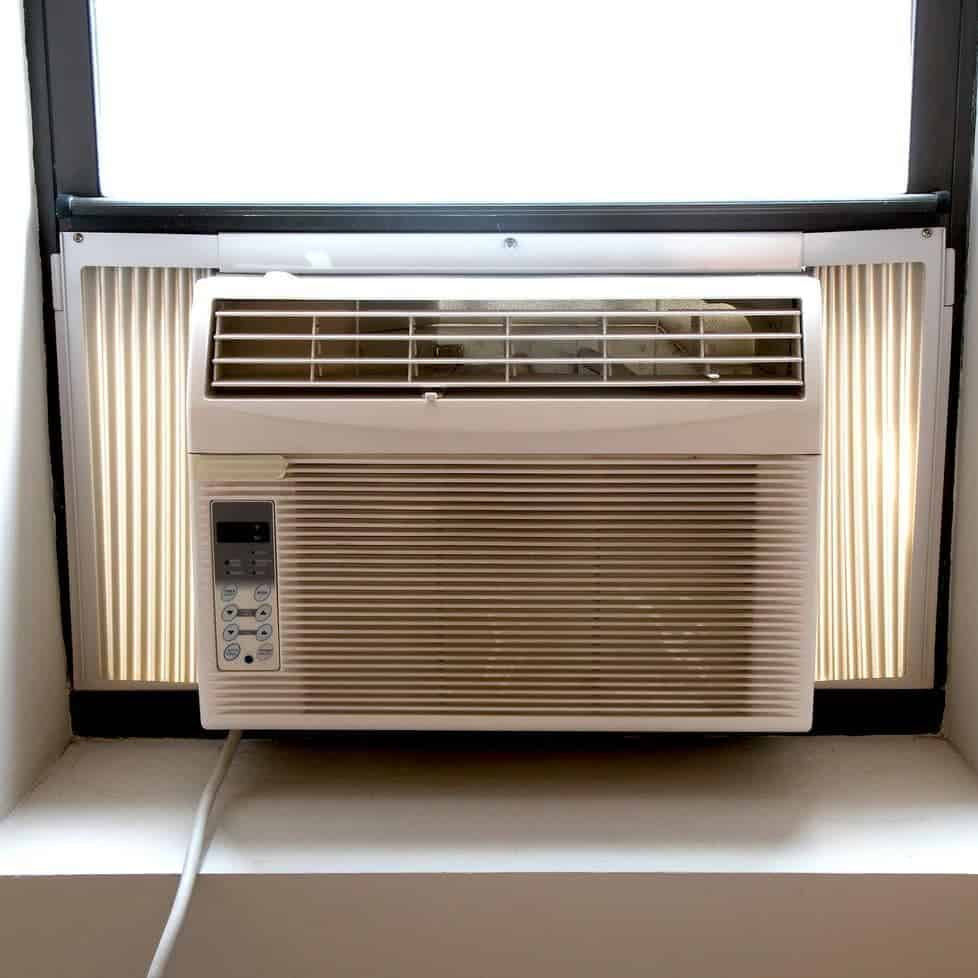
It is time to find out which signs will tell us there is a freon leak in the AC conditioner. The sooner you spot them, the better because something like this can cause permanent damage to the AC unit!
1. Higher Than Usual Electricity Bill
The first of the signs we will discuss that indicate you have a refrigerant leak is a higher-than-usual electricity bill. In the case of a leak, your air conditioner will not have enough of the refrigerant it needs to cool your house like in the past, which means it will have to work overtime to achieve this.
Of course, more work means more electricity consumption, which will eventually be reflected in your electricity bill.
2. Hissing, Whistling, Or Bubbling Noises
When your window AC unit is working correctly, you will not hear a lot of sounds, especially not some strange ones.
However, this article does not discuss perfect conditions, so do not be surprised if you hear hissing, whistling, or bubbling noises coming out of the AC.
The refrigerant no longer goes through its normal cycle and leaks in one or more places, such as refrigerant lines or internal valves, which results in the appearance of strange sounds.
3. AC Freezing Up
There are many reasons why ice forms inside the ac unit, such as a dirty filter or a faulty blower fan, but one of the most common is freon leakage.
When there is not enough freon in the evaporator coils, the pressure in them drops, leading to a drop in the temperature. As the temperature drops below 32° F, ice starts to form and appear on the coils.
4. Warm Air Coming From The AC
Warm air coming from the AC is the next sign indicating that your air conditioning unit has problems with refrigerant leakage.
In the previous issue, we said that the air conditioner would work overtime to compensate for the lack of freon, but sometimes no amount of work can make up for it.
In that case, the warm air entering the air conditioner, which under normal conditions would be cooled down and only then blown into the home, will not cool down, resulting in your air conditioner pushing out warm(er) air.
5. It Takes More Time For The House to Get Cooled Down
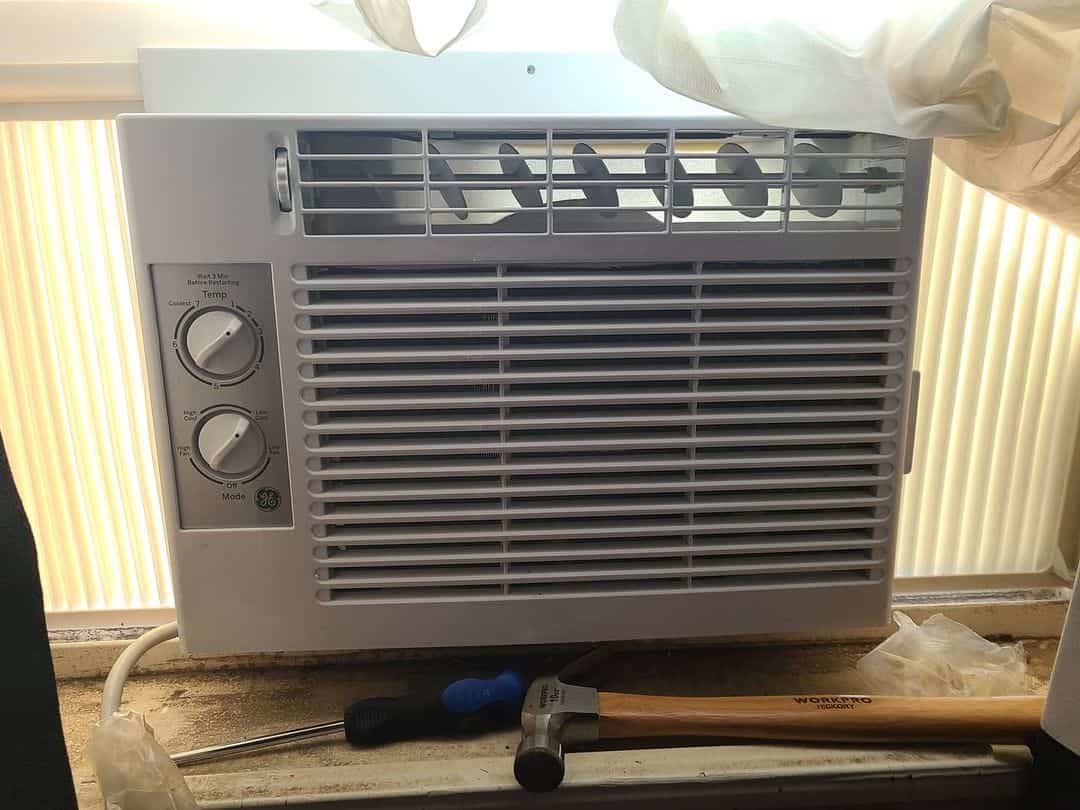
And while it is easy to understand that something is wrong when the air conditioner blows out warm instead of cold air, sometimes the problem is not so easily discernible.
If the freon has just started to leak, this will not affect the performance of your air conditioner that much, but as time goes by, the AC will need more and more time to cool down your home.
So, if you notice that your air conditioner is working but needs more time than usual to cool the house, a freon leak may be the reason behind it.
6. Condensation Forming On The Outside Of The AC
The last of the signs we will mention that will tell you that there is a freon leak is the formation of condensation on the outside of your air conditioner.
How To Prevent Freon Leakage?
Leaks and other types of malfunctions in your air conditioner are almost inevitable because nothing is made to last forever.
However, there are two things you can do to reduce the likelihood of something like this occurring to a minimum.
The first is to use your heating and cooling unit according to the manufacturer’s instructions. Before releasing them to the market, manufacturers put their air conditioners through tons of tests and trials to ensure the best and safest product that will also bring them the most profit.
Manufacturers know what they are doing, so the best thing you can do is be a responsible and disciplined user of air conditioners and listen to their advice.
The other thing concerns regular maintenance and servicing, which is recommended to be done at least once a year, so remember to call an HVAC technician in early to mid-spring before the temperatures ramp up.
Will Freon Leak Affect Your Health?
At some point during all the fuss about freons depleting the ozone layer and not being environmentally friendly, people started asking how much they are dangerous in a “normal” environment, i.e., what happens to the regular person’s health if freon leaks in their home.
At room temperature – freon is a gas. Inhaling small amounts in the room does not pose an immediate risk, nor does it lead to delayed consequences.
However, deep, direct inhalation of large amounts of freon reduces the oxygen supply to the lungs and causes dizziness, headache, irregular heartbeat, and anxiety. Long-term exposure to it can result in serious illness and damage to vital organs, so caution is recommended for people who work with freon on a regular basis.
Conclusion
Although it seemed that it would be like that at one point, your first high school romance may not have lasted forever. But you know what will? Freon. Freon will never leave you. Not you literally but your window air conditioner.
Well, unless there is a leak in the system. In that case, the freon level will drop, leading to a malfunction of the AC.
Want to share with us a story of your eternal love? Or the problems you have with freon or AC? Do you have something to ask regarding this topic? We are waiting for you in the comment section!


